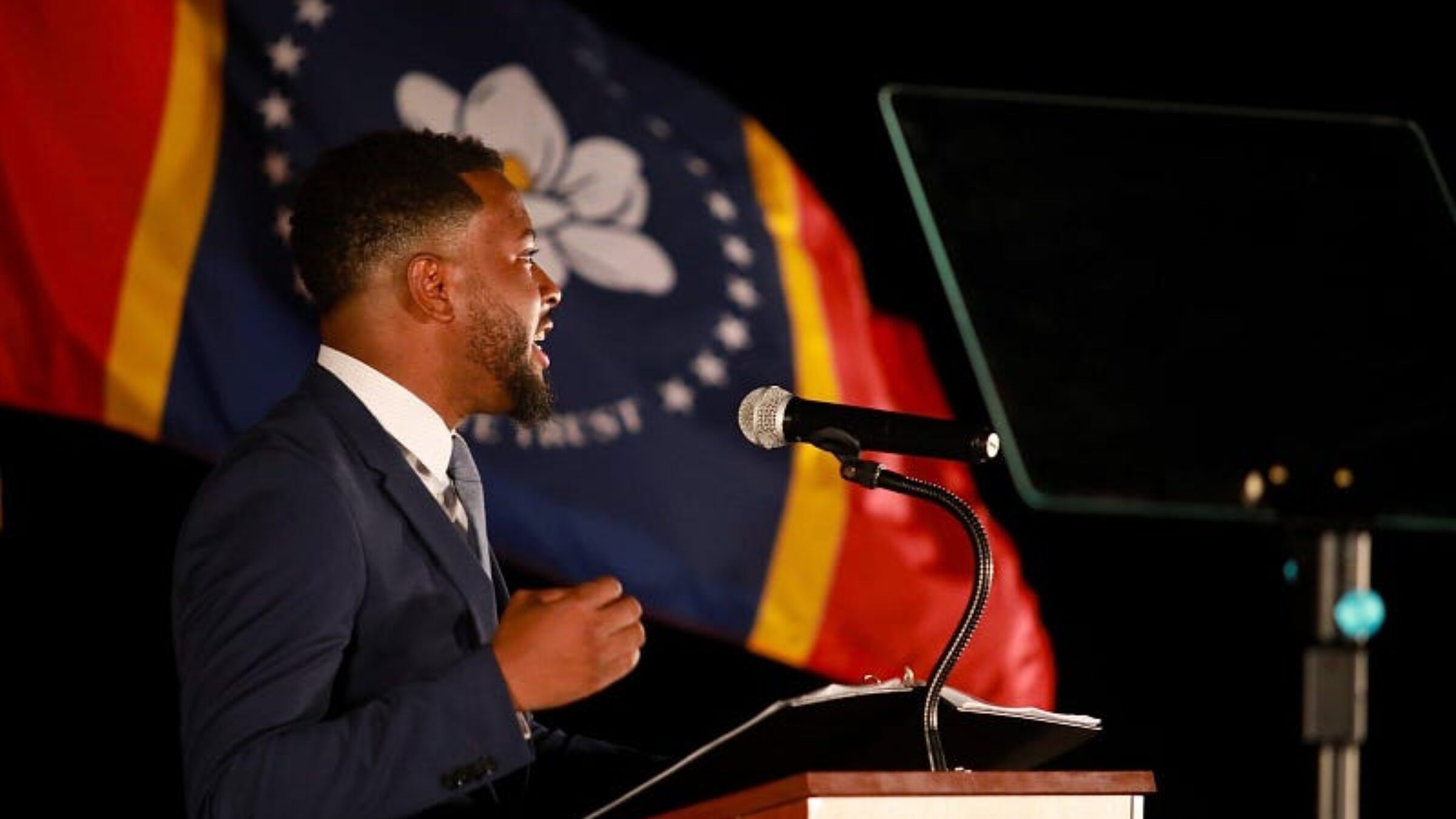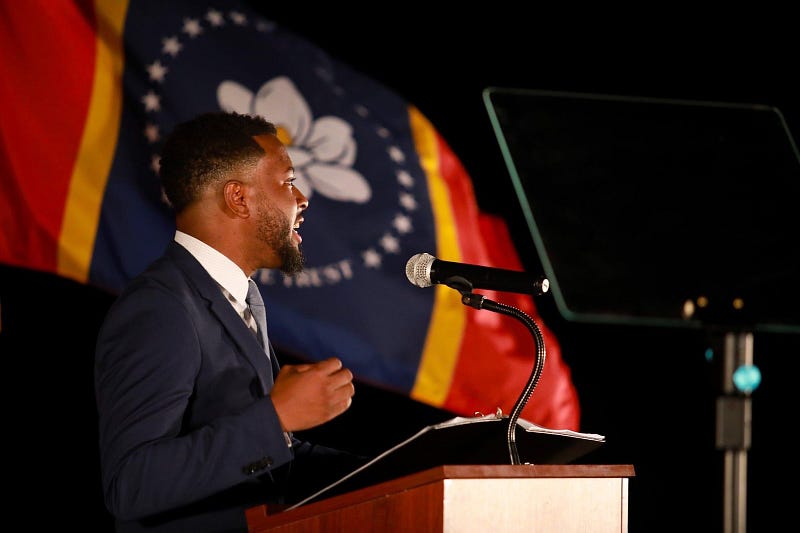MAP Celebrates Our Millennial Black Lawmakers for Black History Month
February 25, 2021

Each year, February marks Black History Month: an observance dedicated to commemorating the multidisciplinary accomplishments of the Black diaspora in the United States.
In politics, many individuals broke barriers as the first Black men and women elected to public office. The United States did not have its first Black federal lawmaker until 1870, when Senator Hiram Revels was elected as a U.S. Senator from Mississippi. Shirley Chisholm was the first Black woman elected to Congress; Carol Moseley Braun was the first Black woman elected to the Senate; President Barack Obama became the first Black president; and just recently, Kamala Harris became the first woman and first person of color to ever hold the office of the Vice Presidency. Earlier this year, we celebrated the accomplishment of our first ever Black Secretary of Defense in Lloyd J. Austin, III.
Black contributions to American society are often overlooked, despite Black history being an essential part of the American story. As such, MAP commemorates and celebrates our nation’s historical Black figures, and especially our young Black lawmakers in our Future Caucus Network we are proud to work with every day.
Today, 47 states have at least one Black lawmaker and there are over 700 Black legislators in state governments in the United States. The 117th Congress consists of 58 Black Representatives and three Black Senators.
MAP’s State Future Caucus Network (SFCN) and Congressional Future Caucus (CFC) includes many of these Black legislators who are hard at work fighting for their constituents and for Millennial issues.

- Mississippi Future Caucus Co-Chair Rep. Jeramey Anderson is one of the Millennial legislators who led the charge to remove Confederate iconography from Mississippi’s state flag. Seeking to make Mississippi inclusive to all its citizens, the bipartisan effort resulted in the adoption of “The New Magnolia” flag; the new flag replaces the old Mississippi flag and the divisiveness and racial overtones that came with it.
- Rep. Leslie Herod of Colorado, Co-Chair of MAP’s Criminal Justice Advisory Council, has sponsored legislation to restore voting rights of parolees, to reform cash bail, and substance abuse treatment in the criminal justice system. All of these bills, which have since been signed into law, have served to improve the criminal justice system in Colorado and expand the vote of those Coloradoans who are on parole.
- Louisiana Future Caucus Co-Chair Rep. Edward C. James II sponsored criminal justice reform legislation that has allowed courts to waive court fees due to financial circumstances, expand parole eligibility of certain juveniles, and allows some nonprofits to have access to criminal justice data — all of which have been signed into law.
- Rep. Sonya Harper, member of MAP’s Criminal Justice Advisory Council and Chairwoman of the Illinois Black Caucus is one of the dozens of legislators who sponsored HB 2541 in Illinois which requires that the Department of Corrections and the Department of Juvenile Justice provide nonpartisan civics education to soon to be released citizens. Passed in 2019 and in effect since the beginning of 2020, the Act has helped expand voting rights, educate inmates and detainees of their rights, and encourage them to re-register to vote upon their release.
- Georgia Future Caucus Co-Chair Rep. Jasmine Clark has co-sponsored legislation that would allow seventeen year olds to vote in Georgia and a police reform measure regarding the use of force, among other measures.
- Alabama Future Caucus Co-Chair Rep. Chris England has worked to expand early voting in Alabama and is leading the charge to repeal the state’s Habitual Felony Offender Act to allow for more lenient sentencing in a state with one of the harshest sentencing laws in the nation.
- Alaska Future Caucus Co-Chair Rep. David Wilson has been a bipartisan player in the Alaska State Legislature with multiple co-sponsored bills being passed and signed into law. Among these measures include allowing retired teachers to be rehired by school districts, licensing requirements for marital and family therapists, and establishing October 25th as African American Soldiers’ Contribution to Building the Alaska Highway Day.
- Tennessee Future Caucus Co-Chair Sen. Raumesh Akbari is pursuing criminal justice reform by introducing measures such as SB 1839,which requires a physician to provide prenatal and postpartum medical care to pregnant inmates and detainees. Akbari has introduced measures to improve parole eligibility, expunction for certain misdemeanors, and bail reform, to improve the welfare of Tennesseans.
In our Congressional Future Caucus (CFC):
- Rep. Joe Neguse, Co-Chair of the 116th Congress’ CFC is an advocate for H.R. 447 or the National Apprenticeship Act of 2021, which aims to expand apprenticeships, increase diversity in apprenticeship programs, and provide new pathways to full time employment for many Americans. Rep. Neguse is the author of the Next Generation Votes Act which would require states to allow those younger than eighteen years of age to submit applications to register to vote as long as they are sixteen years of age. The Next Generation Votes Act aims to increase youth participation in the electoral process.
- CFC member Rep. André Carson, a co-sponsor of the National Apprenticeship Act of 2021 and Next Generation Votes Act, has also supported legislation to make election day a federal holiday in HB 222 and H.R.1065 which would mandate workplace accommodations for women’s childbirth, pregnancy, or related medical issues. These bills could expand voter participation and allow new and expecting mothers to fully participate in the workplace.
- CFC member Rep. Hakeem Jeffries of New York and Chair of the House Democratic Caucus has co-sponsored the Paycheck Fairness Act and a bill that would no longer require the US Post Office to prepay retirement benefits. These bills have the ability to address wage discrimination, hand more power to workers, and ensure the longevity of the US post office.
The work of our Black legislators has been instrumental to MAP’s mission, and we are proud to work with them every day. From criminal justice reform and democracy modernization to the future of work and energy resilience, Black legislators are an essential part of the policy making process on issues that matter most to Millennials.
Without the work of these legislators, our democracy would look drastically different; today’s Black legislators are crafting a legacy of meaningful, effective, more representative policymaking. Indeed, America has always been strongest when our democracy is truly representative.
Although February is drawing to a close, we remember that Black history is American history, every day.
From everyone at MAP, happy Black History Month! MAP shares our gratitude and celebration for the Black legislators in our Network that we are proud to work with every day.






Join 1,900+ BIPARTISAN LEADERS NATIONWIDE
Be a part of a network of lawmakers committed to governing effectively, passing more representative public policy, and increasing public trust in democracy.